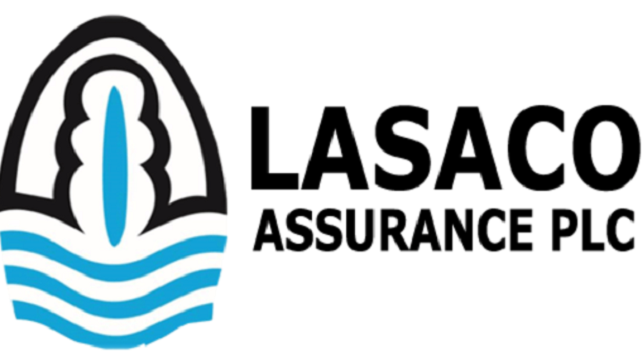News
Lagos Unveils Cyber Security Toolkit for Small Businesses

The Lagos State Government on Friday announced the introduction of a cyber security toolkit for small business, a free online resource that small businesses can use to significantly reduce their cyber risk and curtail incidences of cybercrime.
The toolkit, which is a joint effort between the State Ministry of Justice and the Global Cyber Alliance (GCA), is an international, cross-sector effort dedicated to eradicating cyber risk and improving the connected world, while the toolkit also provides real-world tools and clear directions for taking immediate action for reducing cyber risk at a time when the need for such resources has never been greater.
Speaking at the launch of the toolkit, Attorney General and Commissioner for Justice, Mr. Adeniji Kazeem (SAN) described the toolkit as a great asset to small businesses, saying that the development would go a long way to tackle the menace of cybercrimes.
According to him, “The major driving force for the deployment of the cyber security toolkit for small businesses in Lagos State is its apparent potential to reduce cybercrime which in-turn has a significant impact on our collective gains as a Ministry that focuses on creating a crime free society.
“The nature of cybercrime goes beyond national boundaries; hence, there is need for international initiative and concerted trans-border joint actions in fighting cybercrime and also providing bulwarks against its perpetration.
“To further its cyber security efforts, the Lagos State Ministry of Justice joined GCA as a partner in support of its mission to eradicate global cyber risk. Small businesses are the lifeblood of a community and provide all manner of essential services and support to individuals, enterprise businesses and government. Even though a business may be small, when it comes to cybercrime the risks are great.”
Kazeem added that the toolkit, which would be regularly updated with input from users, industry experts and public and private partners across the globe, was developed in partnership with Mastercard, while the Global Cyber Alliance also partnered with several additional organizations to create the GCA cyber security toolkit, including the Center for Internet Security, the Cyber Readiness Institute, the City of London and the City of New York.
He said as a thriving State, which encourages inward investment and also supports indigenous Small Medium Enterprises (SMEs) which are vulnerable to cybercrime, the initiative was appropriate and timely to the State, assuring that government would further collaborate with relevant stakeholders to make deepen access to the toolkit.
“The Lagos State Government will encourage and collaborate with relevant stakeholders in the business community and regulatory bodies to embrace this cybercrime toolkit for small business as a formidable initiative in fighting cybercrimes and related offences.
“To access the GCA Cybersecurity Toolkit, visit https://gcatoolkit.org/smallbusiness or the website of Lagos State Ministry of Justice www.lagosministryofjustice.org for a redirection to the GCA Website. The Lagos State Ministry of Justice and the GCA will also be conducting a series of webinars on how to protect your business from cybercrime,” Kazeem said.
At the earlier launch of the toolkit, which took place in New York and London on the 19th February 2019, in reiterating the importance of cybersecurity, City of London Police Commissioner Ian Dyson had said: “As the national lead force for fraud and a founding member of the Global Cyber Alliance, we are always pleased to see new initiatives that will assist businesses in improving their cyber security.
“Businesses lost £6.7 million as a result of social media and email accounts being compromised between April and September 2018.
It’s therefore essential that we, as a force, continue to work closely with businesses as well as the organisations that serve to protect them.”
According to Cyrus Vance, Jr., Manhattan District Attorney, “When we launched the Global Cyber Alliance, we set out to empower organizations of all sizes with the tools they need to prevent cybercrime.
“The Global Cyber Alliance’s free Cybersecurity Toolkit provides small- and medium-sized businesses with immediate, concrete steps to protect their companies and customers against crippling cyberattacks, and I thank each of the public and private partners who contributed their world-class expertise.”
On his part, President and CEO of Global Cyber Alliance, Philip Reitinger, said the significant difference between the firm’s Cybersecurity Toolkit and those of others was the fact that it is an action kit, adding that the focus was on protecting small businesses.
“Our focus is on producing a dynamic clearinghouse of operational tools that help small and medium businesses address risk and improve their cyber security posture, leveraging the deep expertise of our network of global partners, such as Mastercard, and the experiences of actual GCA toolkit users,” Reitinger said.
News
How and Why N210 Trillion is Missing in NNPCL Coffers – CFO

Adedapo Segun, chief financial officer (CFO), Nigerian National Petroleum Company Limited (NNPC), has explained why there is a missing sum of N210 trillion in the company’s audited financial statement spanning from 2017 to 2023.

According to Segun, the missing funds are cash calls requested by joint venture (JV) partners and settlement to the JVs.
He spokeat a session of the Senate Committee on Public Accounts chaired by Aliyu Wadada.
Segun was responding to an alarm raised by the committee over missing N210 trillion in NNPCL’s audited financial statement.
Recall that Wadada issued a one-week ultimatum to NNPCL to account for the missing N210 trillion.
Reacting, Segun said, “The N103 trillion and N107 trillion are made up of joint venture cash calls that have been requested by the JV operators and JV cash call payments made by NNPCL, which are yet to be reconciled because governance procedures were not done at that time.
“That is why you see the description reflecting those two items would be washed out because they are two sides of the same transaction, which is the cash calls by JV partners and the settlement by NNPCL.”
However, Habu Sadeik, a financial analyst, in a post on X on Thursday, said Segun’s response was unsatisfactory.
Saidik faulted NNPCL’s response about the fund discrepancies, noting that something is not right with the audited financial statement.
“Forget about the senators’ lack of knowledge.
“The CFO’s response is not satisfactory. Are you saying that cash calls worth hundreds of trillions are just appearing on your FS only in 2024 without 31 disclosure?
“If it’s a cash call, why hasn’t the disclosure said so?
“Which cash call is over 100 trillion?
“Something is definitely not right, and I hope they retrospectively correct that FS.
“Someone somewhere did a chef’s work,” he wrote on X.
News
PalmPay, Glo Launch “Recharge and Win Bonanza 2” with Exciting Prizes

PalmPay, Nigeria’s leading fintech company, has partnered with Globacom to launch the second edition of the “Recharge and Win Bonanza” campaign. The promotion, which runs from June 19th to August 8th, 2025, offers Nigerians the chance to win amazing prizes when they purchase Glo airtime and data via the PalmPay app.

According to a joint statement by PalmPay and Globacom, “A weekly live raffle draw will be held and streamed on PalmPay’s official social media channels throughout the campaign. Customers who make Glo transactions through the PalmPay app will be eligible to win prizes, including the iPhone 15 Pro, Infinix Hot 40, and other exciting items”.
To participate, interested customers can log onto http://bit.ly/PalmPaySms .
The statement added that all transaction above N500 gives participants an extra shot at winning, adding that daily social media challenges will also offer participants a chance to win cash prizes.
Additionally, PalmPay users can enjoy up to 6% cashback when they buy Glo airtime and data through the PalmPay app. As an added bonus, customers who have not subscribed to a Glo data plan in the last 90 days will receive a 100% bonus on their recharge during the campaign period.
Wayne Ruppel, Head of Billers at PalmPay Limited expressed excitement about the partnership, stating that, “This collaboration is a major step in our mission to deliver MORE – more support, more rewards, and more innovation to our customers.
Partnering with Glo, a leader in the telecommunications sector, is a testament to our shared commitment to improving everyday experiences for all Nigerians. We are excited to reward our users and encourage everyone to take full advantage of this exciting opportunity.
Globacom also expressed delight at creating additional value for its subscribers through unique customer-appreciation schemes.
“Our partnership with PalmPay on the “Recharge and Win Bonanza perfectly underscores our commitment to delivering exceptional value and experiences. Over the years, we have always sought innovative ways to enrich the lives of our customers. We, therefore, enjoin our subscribers to utilize the opportunity provided by the bonanza and enjoy the many benefits it offers”, the company stated.
PalmPay and Glo will collaborate throughout the campaign period to deliver exceptional customer experience, reward loyalty, and reinforce their shared mission to make digital transactions more accessible, rewarding, and secure for millions of Nigerians.
News
Lasaco Assurance to Invest in Technologies, Systems to Deliver Value to Clients

Lasaco Assurance Plc, has said it would continue to invest in technologies and systems that delivers tangible value to clients and drive industry innovation.

Mr Abiodun Razzaq, Managing Director of Lasaco Assurance, who stated this at the 2025 customer forum organised by the company for its northern region customers in Abuja, said the forum’s interactive session offered an invaluable platform for open and constructive dialogue.
He said the forum brought together a distinguished assembly of customers, including policyholders, brokers, corporate clients, and industry partners, to engage in a robust dialogue aimed at enhancing service delivery and aligning offerings with the evolving expectations of the Northern market.
In his opening remarks, Regional Manager (Northern Region), Lasaco Assurance, Mr. Kunle Hamza underscored the company’s unwavering dedication to stakeholder engagement as a foundational pillar of its growth strategy. He emphazised that customer insights remain integral to shaping policies, refining service processes, and reinforcing the company’s brand promise.
He provided a compelling overview of Lasaco assurance’s recent performance and strategic priorities. He highlighted the company’s consistent premium income growth, bold digital transformation agenda, and ongoing operational restructuring designed to ensure responsiveness and resilience in a dynamic insurance landscape.
Addressing the customers, Mr. Adedayo Adetokun, Head of Strategy, affirmed that Lasaco assurance was actively developing multiple digital platforms to cater forvarious customer segments—part of a broader digital innovation roadmap that positions the company for future growth. He noted that human capital development was also being prioritised with targeted investments in talent acquisition and training to enhance operational capacity.
In his closing remarks, Mr. Muyiwa Anwoju, General Manager, Sales, expressed the management’s deep appreciation for the feedback received.
He assured participants that all contributions would be meticulously reviewed, categorised, and integrated into the company’s improvement plans. According to Anwoju, this forum marks the beginning of a renewed customer engagement framework, one that would be expanded across other regions in due course.

 Telecom2 days ago
Telecom2 days agoALTON Clarifies on Migration to End-User Billing for USSD Services

 News3 days ago
News3 days agoDigital Africa Global Consult, NDPC Partner on Ground-Breaking “Nigeria Data Challenge” Initiative

 E-Financial2 days ago
E-Financial2 days agoNigerian Stock Market Suffers ₦183 Billion Loss Amid Profit-Taking

 News2 days ago
News2 days agoDStv Rewards Loyal Customers with Free Package Upgrades

 Telecom2 days ago
Telecom2 days agoLagos Future Conference 2025: Stakeholders Call for Digital Responsibility and Grassroots Innovation

 General News2 days ago
General News2 days agoAfrican Parliamentarians Seek Answers from Telcos on Quality of Service

 E-Financial2 days ago
E-Financial2 days agoSEC Working on Stablecoin Regulation Framework

 News2 days ago
News2 days agoFCCPC Orders Air Peace to Appear Over Alleged Refund Violations
















